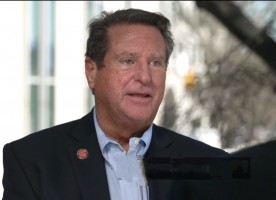I lost a very close friend to suicide. His death still affects me, as well as his other friends and family. The impact of suicide is widespread and affects many people personally. Those who are suicidal often don't want to die; they just feel like they don't know how to go about living or see a way out of their problems. When life feels unbearable, suicide can seem like the only option.
The old television show M*A*S*H had an opening song called Suicide is Painless. The title song's origin is based on a scene from the movie. Unfortunately, too many people in our world are indeed inflicting harm and end up taking their own lives. The pain they cause goes well beyond the pain inflicted upon themselves. Suicide is not painless. Death leaves survivors.
Mental health issues are real and have been ignored for far too long in our society. I have criticized several of Governor Bill Lee’s education policies, but his support for mental health has been admirable. We still have more work to do in this area. Governor Lee shared a personal story about his daughter's suicide attempt, emphasizing the need for resources and support. We support those efforts.
Cultural influences shape our views on mental illness. Educators use compassionate language to break down problems and focus on coping skills. We should approach discussing suicide with similar compassion, offering hope as a better option. Hope is a critical ingredient in resilience - it enables you to get back up and keep moving forward.
The stigma attached to mental health encourages people to hide genuine problems that only manifest later, creating further troubles for themselves, their loved ones, and possibly society - if left untreated. We need to learn how to have conversations about mental health and suicide, keep those at risk safe, and connect them with further help.
Public schools have seen a 69% increase in students seeking mental health services since the COVID-19 pandemic. Moreover, 76% of schools have observed a rise in staff expressing concerns about students displaying mental health-related symptoms. The state must do better to provide sufficient mental health support for students. Due to high demand and limited resources, counselors, social workers, and psychologists are dealing with overwhelming workloads, inevitably creating additional classroom challenges.
In a well-written editorial, Carolyn Heinrich highlights the increase in depression, anxiety, and suicidal behaviors among children, as evidenced in our research using state administrative data. The latest Vanderbilt Child Health poll shows that half Tennessee parents consider their children's emotional well-being a top concern.
Gender significantly influences many diseases, including depression. According to Dr. Jerrold Rosenbaum, male and female brains have differences. Certain psychiatric disorders, such as autism and schizophrenia, are more prevalent in men, while depression and anxiety are more common in women. Men's reluctance to seek help for mental health issues is well-supported.
Mental health and social work professionals tend to focus on children, women, and older adults, leaving men underrepresented. However, many men suffer from untreated depression. According to the Mayo Clinic, male depression often goes undiagnosed with devastating consequences. In the United States, suicide is the 9th leading cause of death, occurring every 12.3 minutes. In 2021, an estimated 12.3 million American adults contemplated suicide, 3.5 million planned an attempt, and 1.7 million made a suicide attempt. Many have a diagnosable mental health disorder.
Psychology Today notes that people with mental health difficulties are heavily stigmatized. Suicide prevention should be a higher priority. We must eliminate the shame surrounding seeking help and advocate for more school guidance counselors. According to Steven Hinshaw, stigma breeds shame and silence; the solution is to talk about it to let people know they are not alone. Suicide is preventable, and mental health is treatable.
We have to encourage people to seek help when they need it. If you need assistance, contact the National Suicide Prevention Lifeline, a national network of local crisis centers that provides free and confidential emotional support to people in suicidal crisis or emotional distress 24 hours a day, seven days a week, by calling 800-273-8255.
In Tennessee, we also have these resources:
- Suicide & Crisis Lifeline: Call or text 988 for 24/7 help. https://988lifeline.org/
- Tennessee Statewide Crisis Line: Call 855-274-7471 for confidential support.
- Tennessee Behavioral Safety Net: Call 800-560-5767 for uninsured or underinsured assistance. www.tn.gov/behavioral-health/bhsn
- The Tennessee Department of Health Suicide Prevention program provides valuable information and resources. You can sign up for alerts and access data at www.preventsuicidetn.com.
- In an emergency, call 911 or go to the nearest emergency room.











